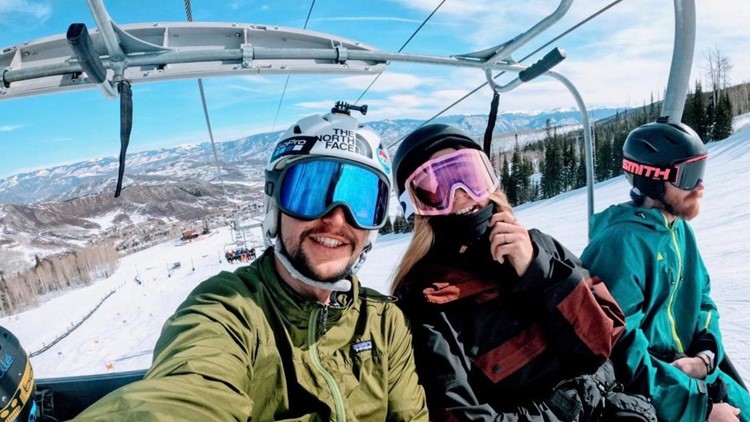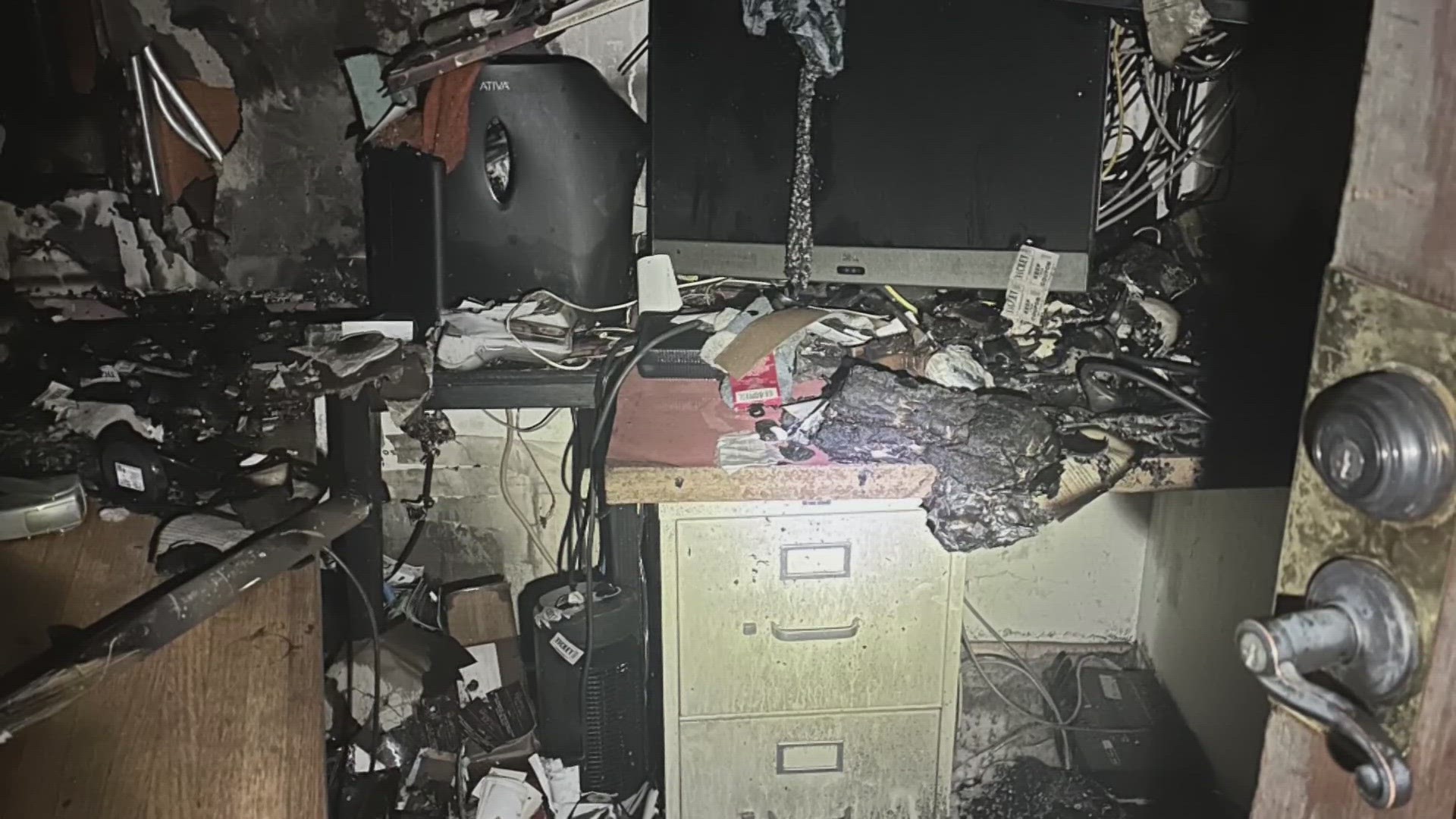ASPEN, Colo. — This winter in Aspen will look a lot less international. Every year, more than 800 seasonal workers come to the Roaring Fork Valley as part of the J-1 visa program. After the Trump administration put a hold on the cultural exchange program in June, local businesses are scrambling to hire enough people for peak season, and hopeful workers are left stuck abroad.
One of those workers is Roger Campos.
He loves snowboarding, which is a relatable hobby for most folks in Colorado ski towns, but perhaps a bit unorthodox for someone living in the tropical climate of Costa Rica. So, to get some more days on the mountain, Campos found his way to snowier pastures.
“One of my dreams was to go to the X Games winter edition,” he said. “And it came true.”
This story is powered by COLab, the Colorado News Collaborative. 9NEWS joined this historic collaboration with more than 40 other newsrooms across Colorado to better serve the public.
Campos has spent the past two winters in Aspen thanks to a J-1 visa. He worked for the Aspen T-Shirt Company, which operates souvenir shops in Aspen and Snowmass. Its staff is replete with international workers.
“Almost the whole team was J-1s,” Campos said. “From Brazil, from Peru, from Costa Rica. A lot of countries, but most of the people were J-1.”
Stores, restaurants and hotels in the valley rely on the program as a steady pipeline of seasonal workers. Many are young people from South and Central America. With hundreds of those workers living and working in the area, Aspen businesses, buses and affordable housing are saturated with a colorful array of languages and accents during the ski season. But this year, they will be absent.
Campos was on track to come back for a third year in Aspen. With the program on hold, he will spend this winter living and working in Costa Rica.
For Lisa LeMay, who manages the T-Shirt Company, the change will leave a sizable gap in the winter workforce. Instead of Campos and other young foreigners, she, and many other businesses in the area, will have to hire local high schoolers and college students home on break.
“It’s going to be difficult and it’s going to be a battle because the competition is going to be really stiff,” LeMay said. “Everyone is going to have to hire those people, just because there’s not a whole lot of that person represented in this valley where we don’t have a lot of college kids or high school kids who want to work or are able to work.”
With about half of her seasonal staff coming on J-1 visas, LeMay is left with a lot of spots to fill. She is hopeful that she can get some of those workers back in January if the visa ban expires at the end of the year, but said that is not a reliable plan.
“We’ve talked to a few who were thinking of coming back,” LeMay said. “But even with the January potential date, that doesn’t work as well for them financially to come back and only be here for the shorter time.”
The absence of J-1s deals a blow to small employers, but also affects the town’s largest. Aspen Skiing Company hires about 350 J-1 visa workers every year, accounting for about 10% of its winter staff. Caleb Sample, Skico’s director of talent acquisition, said J-1 workers are an important part of making international visitors feel welcome, in ski school, for example.
“We have a lot of guests whose kids aren’t bilingual and speak Spanish or Portugese or whatever language it may be,” he said. “We need more J-1s who speak that language natively to look after those kids to make them comfortable.”
Sample said those workers tend to end up in front-of-house roles where they’ll interact with foreign visitors, often assigned to work at front desks and teach ski school.
This year, with the pipeline of foreign workers shut off, Skico is seeing more applications from American college students.
“A lot of folks that were looking to defer a year, potentially they've just graduated,” Sample said of this year’s applicants. “Maybe they're actually taking online classes and they can do both. They can work in Aspen and go to college still.”
When the Trump administration put the visas on hold, they characterized the move as an effort to free up jobs for young Americans during times of record unemployment. But Dave Byrd, director of risk and regulatory affairs for the National Ski Areas Association, said domestic workers rarely compete for the types of jobs held by J-1 workers.
“There's plenty of public polling out there that say an overwhelming majority of Americans don't want to be a chairlift operator for a five month job,” Byrd said.
He added that even during a period of high unemployment, there are barriers that will keep young Americans from moving to mountain resort towns for seasonal work.
“People are not going to uproot themselves and move from Virginia to take a job at Snowmass for five months and grapple with moving and trying to find housing,” Byrd said.
But young foreigners, driven by a desire to travel and learn how American businesses work, will do exactly that, Byrd said.
“I was trying to search for an exchange program just to improve my English skills, learn more about U.S. culture and obviously do some snowboarding,” said Roger Campos.
RELATED: Glenwood Canyon is exhibit A for the risk climate change poses to the country’s infrastructure
Some other remote ski areas, especially in areas such as California and the Southeastern United States, have even more trouble attracting workers. Even before the pandemic, more than 60% of ski areas in both of those regions said they were unable to fill all of their positions.
And because the steady flow of J-1 work is dependent on returning workers convincing their friends to join the program, Byrd worries the skipped year could make it harder to recruit new workers down the road.
When it comes to attracting workers in years to come, Campos is living proof that word of mouth is a great way to get folks abroad excited about Aspen.
“Most of the people say, ‘How is it, how was Colorado?’ And I say ‘It’s amazing, you have to go,’” Campos said.
Campos says all of those friends hear his stories, see his pictures, and want to join the exchange themselves. But in all likelihood, they will not get a chance to do so this year.
And without a fresh pool of excited young seasonal workers, Campos thinks Aspen will be missing a certain enthusiastic spirit.
“You take the bus and you feel all the energy of happy people who are having their dreams come true,” Campos said. “In the work environment, they will lose young people who really want to work every day.”
SUGGESTED VIDEOS: Local stories from 9NEWS



